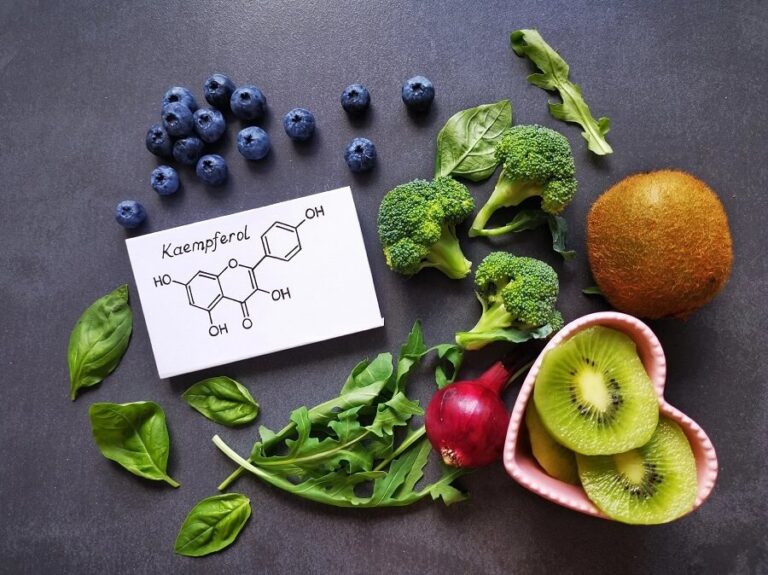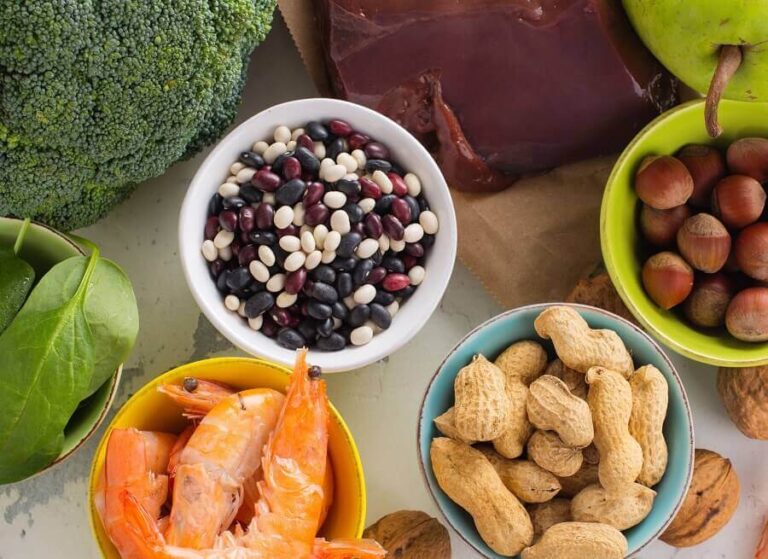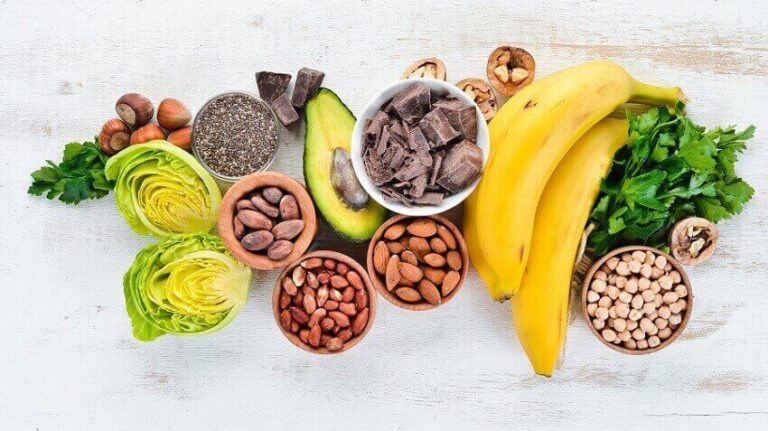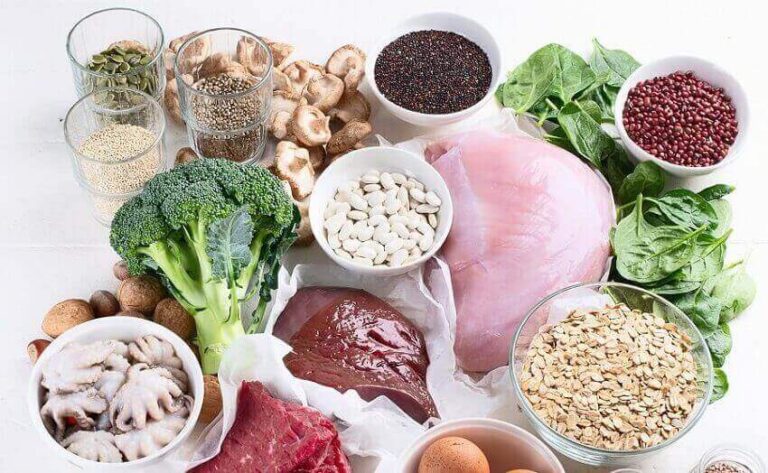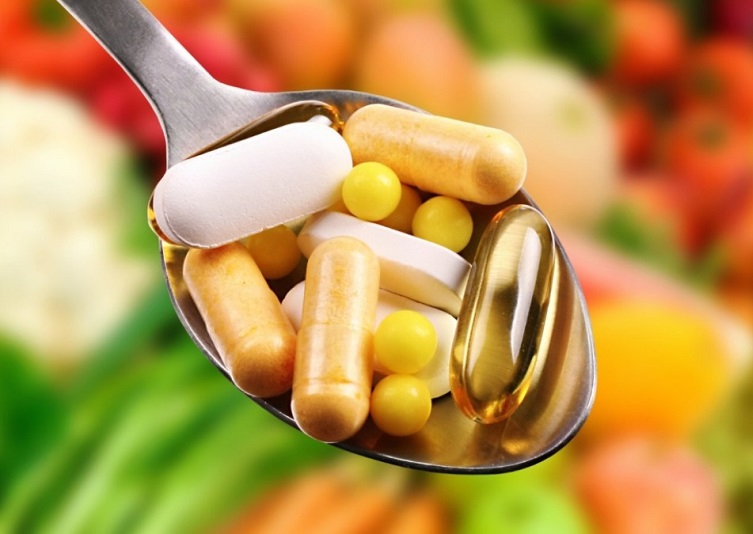Vitamin A – What is it?
Vitamin A or retinol is a fat-soluble molecule, a fundamental component to strengthening the immune system and achieving optimal health. Foods with vitamin A improve skin health and accelerate wound healing processes, including psoriasis and eczema.
Vitamin A is necessary to neutralize the adverse effects of free radicals; for example, it slows the growth of cancer cells (this effect is synergistically enhanced when worked together with vitamin D and vitamin E ). It is essential to know that being fat-soluble is better absorbed when taken in combination with fatty foods.
In the form of retinoids, vitamin A is found in most foods of animal origin: in fish oil, eggs, butter, milk, beef liver. Also, in the form of β-carotene, it is found in many plant foods, for example, in red vegetables: lentils, peppers, and yellow vegetables (carrots, zucchini, squash), as well as in less quantity in spinach. 10% of ingested β-carotene can be converted into vitamin A¹.
The recommended amount of vitamin A varies according to sex and the period of life according to the following table:
Adult men – 1 mg / day (3000 IU)
Adult women – 0.8 mg / day (2300 IU)
Adolescents – 0.6 mg / day in (2000 IU)
Children – 0.3 / day (1000 IU)
In pregnant women and lactation period, retinol needs increase by 15-20%.
Can you have excess vitamin A?
Retinol can accumulate in body tissues and cause hypervitaminosis. In other words, its excessive consumption is harmful to health and leads to intoxication. The upper limit for the amount of vitamin A is 3 mg for adults and 0.9 mg for children. The safe limit at one time is approximately 9 mg.
Having an excess of vitamin A due to food consumption is unlikely. The most common cause of vitamin A poisoning is the misuse of multivitamins. One of the most frequent mistakes in nutrition is excess due to supplementation. It is more important to emphasize food than to spend large amounts on these dietary supplements.
Health benefits of vitamin A
Vitamin A is necessary for the tissues of the skin and mucous membranes to maintain health and be regenerated after specific damage. One of the critical functions of retinol in the body is to improve collagen synthesis, the primary building material for the body’s connective tissues. Retinol is especially useful for restoring the immune system after illness and athletes training for muscle growth.
Retinoids (synthetic vitamin A analogs) are found in various cosmetics to treat the skin, from wrinkle creams and sunburn lotions; to medications for acne and creams for stretch marks. Scientific studies show that retinol is one of the few compounds that improve health through the skin.
Lack of vitamin A in the body: consequences
Lack of vitamin A mainly affects thyroid and sex hormone levels. In addition, a chronic retinol deficiency prevents the absorption of iron from food, leading to the development of long-term iron deficiency anemia. Inadequate intake of foods with vitamin A is dangerous for women, especially pregnant women since retinol is responsible for the nutrition of the fetus.
Symptoms of vitamin A deficiency:
The most common symptoms of vitamin A deficiency in the body are:
- Chronic dryness of the skin and mucous membranes
- Reduced adaptation of sight to the darkness
- Deterioration of the hair condition (loss, accentuated alopecia)
- Impaired immune system (frequent colds)
- Fatigue
- Brittle nails
If any of these symptoms are present, it is recommended that you see a doctor.
Foods With Vitamin A – What Are They?
In nature, there are a wide variety of foods with vitamin A. They may differ slightly in their chemical structure, and depending on their combination, they may have a different percentage of assimilation by the human body. Retinol is found in animal products: chicken eggs, cheeses, butter, fatty cottage cheese, whole milk, liver, fatty fish, caviar.
In vegetables and fruits, carotenoids are found in the form of beta-carotene; they have converted to vitamin A during digestion. Although the level of assimilation of vegetable beta-carotene is lower than that of animal vitamin A (1 μg of beta-carotene from carrots or pumpkin is equal to 1/12 or even 1/24 μg of retinol from animal meat ) is an effective way to supply the recommended amount of vitamin A.
Animal products, meat, liver, and fish oil are the foods with the highest retinol content. However, in a healthy diet, the idea is to supplement the daily amount of vitamin A with 40% animal foods and 60% in the form of vegetables.
| Food | Amount of vitamin A in 100 g | % DRI |
| Cod oil | 30 000 mcg | 3333% |
| Turkey liver | 8000 mcg | 895% |
| Beef, pork, fish liver | 6500 mcg | 720% |
| Chicken’s liver | 3300 mcg | 370% |
| Red pepper | 2100 mcg | 230% |
| Sweet potato (sweet potato, sweet potato) | 1000 mcg | 110% |
| Carrot | 830 mcg | 93% |
| Broccoli | 800 mcg | 90% |
| Butter | 680 mcg | 75% |
| Lettuce (batabia) | 550 mcg | 63% |
| Spinach | 470 mcg | 52% |
| Pumpkin | 430 mcg | 43% |
| Cheddar cheese | 265 mcg | 30% |
| Cantaloupe | 170 mcg | 20% |
| Chicken egg | 140 mcg | 16% |
| Apricot | 100 mcg | 16% |
| Tomato (tomato) | 40 mcg | 5% |
| Jewish | 38 mcg | 4% |
| Whole milk | 30 mcg | 3% |
| Green pepper (sweet chili) | 18 mcg | 2% |
ABSTRACT
Vitamin A or retinol is responsible for the optimal functioning of the immune system and the health of the epithelial tissue cells. The recommended daily amount of vitamin A in adults is between 0.8 and 1.0 mg. Red pepper, carrot, and fatty animal foods top the list of foods with the most vitamin A. Symptoms of vitamin A deficiency are a dry skin, deterioration, loss of hair, and brittle nails.



